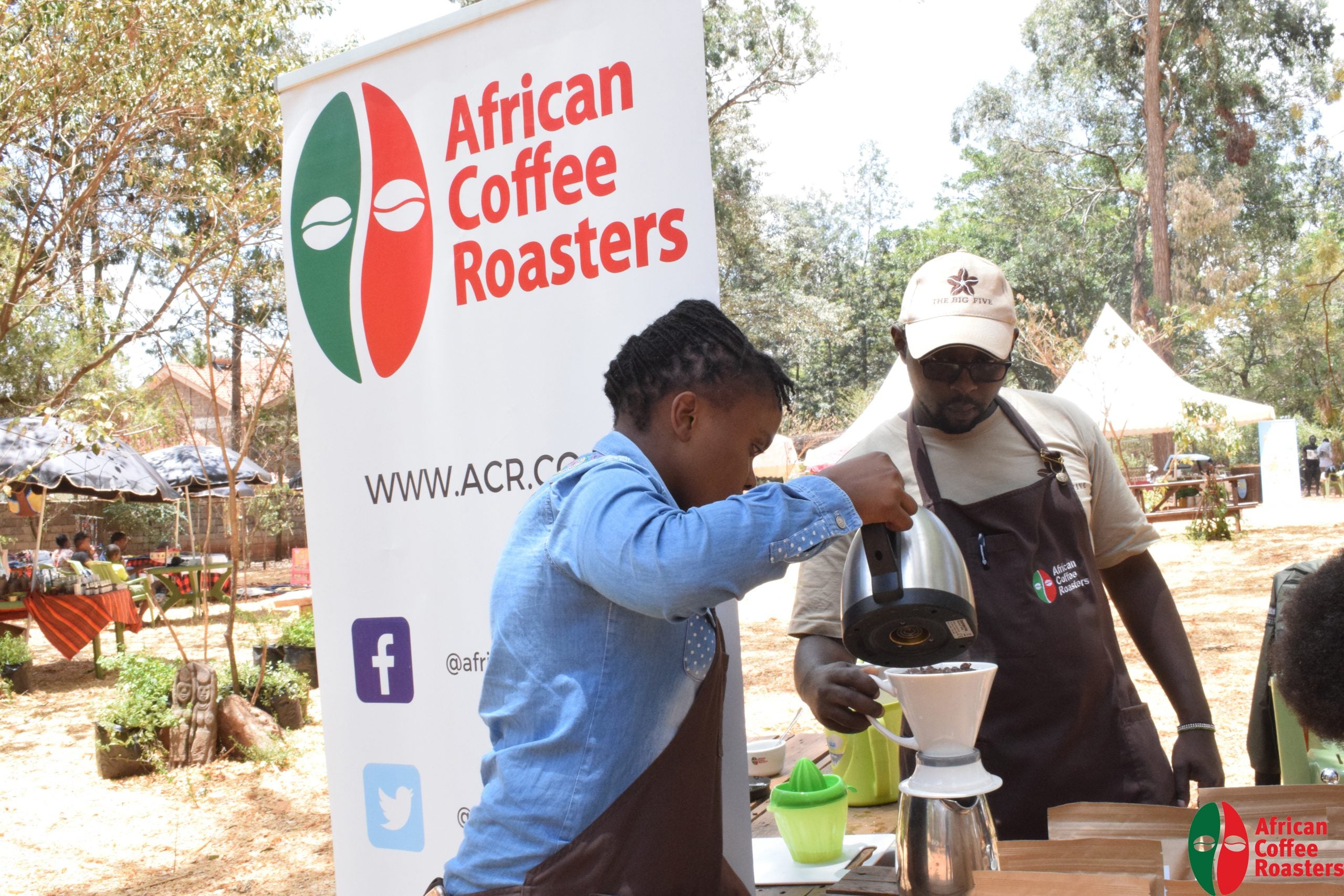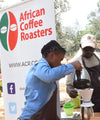Recent Post

Visiting the African Coffee Roasters - where everything started
Steffen Sauer
May 09, 2021
When I started researching about coffee, potential suppliers and contacts in Kenya back in 2019 I got very lucky getting to know Stephen Vick from the African Coffee Roasters.
Short flashback to 2019

(2019 - just arrived at ACR in the Athi River Export Processing Zone - Stephen picked me up for the 1.5h drive)

(He tought me how to prepare a good cup of coffee - still need to get one of those aprons)

(as you can see there are several things to consider)
Back to 2021:
Stephen is not only a real coffee guru with extensive knowledge (competitor United States Barista Championship, World Barista Championship judge, judge of the Cup of Excellence, Head judge Cup of Excellence 2019 stemming from his coffee career with Zoka Coffee, Stumptown Coffee, Intelligentsia Coffee and Blue Bottle Coffee) but also a really nice person.
I am in contact with him ever since so there was no question meeting him when I got back to Nairobi! And what should I say, as always a great catch-up this time over Mexican food and margaritas.

During those catch-ups we cover plenty of topics, this time was no different. Last time we spoke he introduced the world of cold brew to me and shared some contacts in Berlin, this time we were talking about supply chain transparency, farm to cup and roasting at origin concepts. This time I got a contact with whom I will work on the supply chain transparency of Ulinzi Conservation Coffee (I won't spoil the surprise here).
As Chris is planning to bring the Green Coffee Professional SCA Training to Kenya I thought it makes sense to introduce the two to each other. So, Chris and I went to the Athi River Export Processing Zone which is around 35km away from Nairobi.

Starting with a coffee and an introduction round we started to talk about the coffee research being conducted in Kenya towards organic coffee farming and ended up exchanging thoughts about introducing EMO (effective microorganisms) to Kenyan coffee farmer to produce their own organic fertilizer.
This process is already applied in other coffee countries such as Rwanda. It has several advantages as it helps farmers utilizing their scarce resources most efficiently, help them maintain their plants free from diseases and pests and make their plants produce higher yields and higher quality product.
Furthermore does it support the fight against global warming and climate change as organic waste from coffee production (coffee pulp and husk) generates toxic gases like methane, which is 30x more harmful to the environment than CO2. The decomposition of coffee pulp and husk also generates pungent odors and attracts flies, bugs and diseases. Most commonly, coffee pulp (roughly 80% of the coffee cherry’s body) is discharged into local waterways, contaminating water supply downstream, rivers and streams, decreasing water pH levels and decreasing watershed biodiversity.
The solution to that is using the organic waste to produce organic fertilizer - do you want to get the recipe? Here we go:

After that Stephen showed us around and answered questions for Chris on the plant tour.


After a long day and hours of coffee talk we decided to have dinner together and to have a drink at Revolver Cocktail Bar (Whisky Sauer for me 😉 )


This was the perfect closing of an awesome day together with Stephen at the African Coffee Roasters and also the perfect blog post topic to close my blog post series about my trip to Kenya!
Thank you very much for reading - stay tuned as I will be back in Kenya in July
Best,
Steffen



